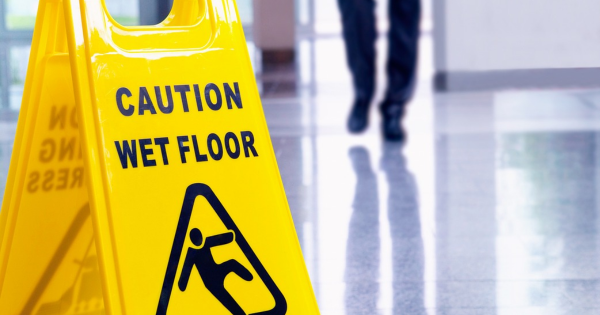It’s one thing to have an idea worthy of pursuing as an entrepreneur; it’s another thing entirely to run a business properly. Most entrepreneurs do start out with a business idea centering around a service or product. They may then begin to build their business on their own or with a partner, but not often with a lot of employees. If the business is fortunate enough to succeed and grow, an entrepreneur would eventually become a boss, hiring people to work beneath them. Taking on employees is a major accomplishment. It really solidifies your business and makes it more of a reality for lots of people; for that matter, employees make it possible for businesses to accomplish more in less time and to grow further. But there is more to taking on employees than simply signing off on paychecks and interviewing candidates. Entrepreneurs are also responsible for the safety of those working for them, whether their jobs are temporary or permanent.
Many entrepreneurs take worker safety less seriously than they should, perhaps because their businesses are less physically strenuous than others would be. But workers can still be hurt or become sick, even in an office job or when working from home. It’s up to employers to keep them as safe as possible, not simply due to the clear moral obligation, but due to the fact that employers can be held legally and financially responsible for injuries that their employees sustain on the job as well. For that matter, when starting a small business, you’ll want your reputation to be as strong as possible. If your workers aren’t kept safe, this will inevitably damage your reputation and certainly the trustworthiness of your brand. As 31% of all consumers report that trustworthiness is the most important brand attribute, this is something that you need to take seriously. With that being said, let’s look into what entrepreneurs need to know about worker safety.
1. Insurance Isn’t Foolproof
Some employers believe that they’re covered by workers compensation insurance and that in turn their employees’ potential injuries and illnesses are further covered by health insurance if it’s offered through their jobs. In fact, this insurance protection can be rather limited on both counts. We all know that many health insurance policies leave a lot to be desired, which is why many Americans end up paying a lot to visit the doctor even when they have health insurance to rely on. The entrepreneur’s insurance provider may only pay for a portion of the injury costs. The entrepreneur themselves would be left with the rest, which could be financially burdensome for a young business. Sometimes, indirect costs could be as much as 20 times the amount of the direct cost of an injury. Furthermore, there are a lot of issues and nuances that can affect the degree to which insurance covers an injury or fines imposed on businesses associated with injuries. For example, when fines are levied by government agencies, insurers usually won’t cover them.
2. Contracts Are Granted Based On Safety Records
Many entrepreneurs run their businesses, especially in the early days, based on contracts. A contract awarded to a small business can last for years and provide the cash flow that entrepreneurs need to succeed. But more and more often, bigger companies are awarding their contracts based in part on safety records. If a small business has a poor safety record, with employees frequently becoming ill or getting injured on the job, bigger companies are unlikely to award that business a contract. If you as an entrepreneur are bidding for a contract, don’t be surprised if the company asks to see your safety history.
3. Employees Will Perform Better If They’re Safe
This may seem obvious to you, but the unfortunate reality is that many entrepreneurs don’t consider the fact that safe and happy employees are better employees. The more physical labor your workers handle, the truer this tends to be. Think about running a house flipping business, and allowing your employees to work without the proper protective gear. As they breathe and blink against dust, it can have a major effect on your workers’ cognitive skills, by as much as 2% to 6%. If your workers’ cognitive skills are affected, of course, they won’t be able to work as accurately or as efficiently as they would otherwise. Furthermore, workers that are taken care of will be more motivated to act as they should and to devote themselves to their work.
4. Safety Equals Investment
In the long term, investing in the safety of your workers will pay off in many ways. But the fact is that your initial investment may be significant. You’ll need to consider not only workers compensation insurance, and providing good benefits plans to your employees; but the physical aspects of creating a safe work environment as well. You’ll want to invest in good protective gear for employees working in a physically strenuous environment, as well as auditors for certain projects, who will make sure that everything is going as safely as possible. You’ll also need to be careful about hours, to keep employees from becoming overworked or overstressed, and provide regular breaks in turn. Even higher quality office chairs can be a great investment. As about half of all Americans admit to experiencing back pain every year, a good office chair can make quite a big difference to a lot of people. Ultimately, however, making these investments is a part of investing in your business on a more general level.
There are so many clear benefits to making sure that your workers are as safe as possible, beyond those that are simply moral. Your business cannot be successful if your employees are not safe, and furthermore, you cannot operate a business as need be for the long term if you can’t attract the right workers. In 2015, more than 20,000 workplace slip and fall injuries were reported to OSHA in California alone; don’t let this happen to your workers. Invest in your people, and people will invest in your business.




